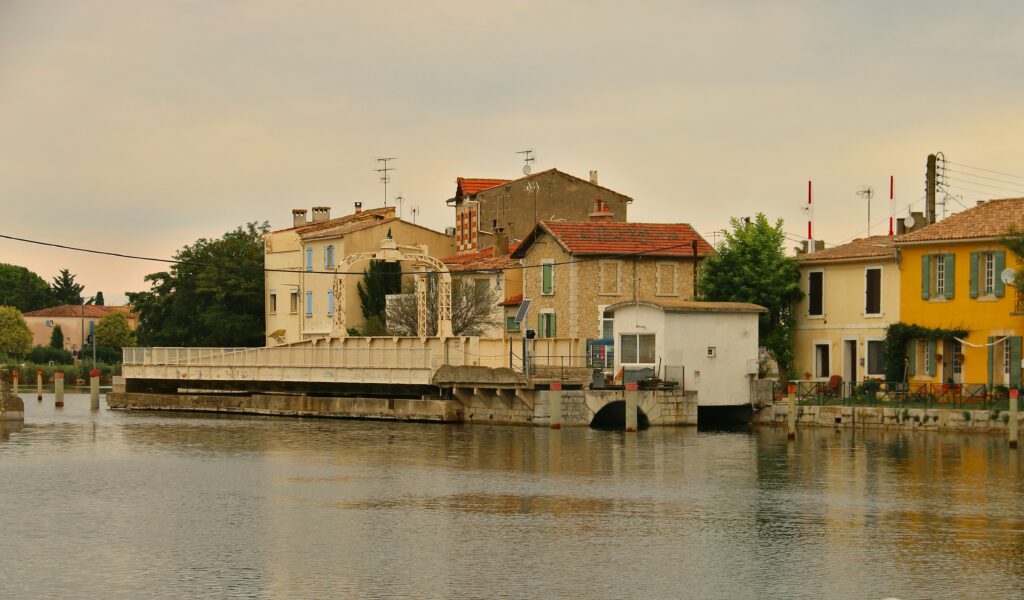“Discover essential Aigues-Mortes travel tips. Maximize your France adventure with practical advice. Plan & explore like a pro – read now!”
Introduction: The Allure of Aigues-Mortes
Standing atop the ancient ramparts of Aigues-Mortes, the salty breeze carries whispers of medieval knights and crusaders. This fortified town in southern France, nestled in the heart of the Camargue region, is more than just a tourist destination—it’s a living museum.

Did you know Aigues-Mortes was France’s only Mediterranean port in the 13th century? Built by King Louis IX as a strategic gateway for the Crusades, its well-preserved walls and towers transport visitors back in time. Unlike the bustling streets of Avignon or Nîmes, Aigues-Mortes offers an authentic, crowd-free medieval experience with winding alleys, salt flats, and flamingo-filled marshes.
In this comprehensive guide, we’ll cover:
✔️ Best time to visit (avoid summer crowds!)
✔️ 3-day detailed itinerary (history, food & nature)
✔️ Local secrets (where to find the best Camargue bull stew)
✔️ Budget tips (free walking tours & affordable stays)
✔️ FAQs (transport, safety, must-see spots)
Ready to explore? Let’s dive in!
Planning Your Trip to Aigues-Mortes
Best Time to Visit
- Spring (April–June): Mild weather (18–25°C), fewer tourists, perfect for cycling the ramparts. Wildflowers bloom along the canals, and the marshes come alive with nesting birds.
- Summer (July–August): Hot (up to 35°C) and crowded, but lively festivals like the Fête de la Saint-Louis (medieval jousting!) and night markets. Book accommodations early.
- Fall (September–October): Ideal for birdwatching in the Camargue marshes. The salt flats turn vivid pink, and vineyards harvest grapes for local rosé.
- Winter: Quiet, but some attractions close. Perfect for photographers seeking foggy, moody landscapes.
Essential Items to Pack
- Comfortable walking shoes (cobblestone streets are unforgiving! Opt for cushioned soles.)
- Sunscreen & hat (the sun reflects intensely off the white salt flats—SPF 50+ recommended.)
- Binoculars (for flamingo spotting in the wetlands—look for their iconic pink plumage at dawn.)
- Light scarf (windy afternoons by the canals can be chilly even in summer.)
- Reusable water bottle (fill up at the town’s historic fountains to stay hydrated.)
Getting There
🚗 By Car: 30 mins from Nîmes, 1 hr from Montpellier. Parking outside the walls (~€5/day). Pro tip: Arrive before 10 AM to secure a spot in summer.
🚂 By Train: TER line to Nîmes or Montpellier, then bus #20 (€2, 45 mins). Check schedules—last buses leave by 7 PM.
🚌 By Bus: Direct routes from Arles (1 hr) and Avignon (1.5 hrs). Book tickets via Gard region’s transport website.
Pro Tip: Rent a bike to explore the Camargue trails—many hotels offer free rentals! Cyclo Camargue (€15/day) has sturdy hybrids for marsh paths.
3-Day Aigues-Mortes Itinerary
Day 1: Medieval History & Salt Flats

Morning:
– Walk the Rampparts (€8, 2 hrs)—Start at Porte de la Gardette and climb the Tour de Constance, where Huguenot women were imprisoned in the 17th century. The spiral staircase leads to a breathtaking 360° view of the town and salt marshes.
– Place Saint-Louis: Sip a café crème at Café des Arcades, a 19th-century gem with striped awnings. Try their pain aux olives—a savory local pastry.
Afternoon:
– Salins d’Aigues-Mortes (€11): Hop on the petit train for a 1.5-hour tour through pink-hued salt ponds. Learn how fleur de sel is hand-harvested. At sunset, the water mirrors the sky in surreal shades of rose and gold.
– Lunch at Le Petit Bistrot: Their brandade de morue (creamy salt cod gratin) is legendary. Pair with a glass of Picpoul de Pinet.
Evening:
– Porte de la Marine: Watch the sunset paint the stone walls amber. Then, head to Les Caves de Pézenas for a tasting of Languedoc wines like Faugères and Saint-Chinian.
Day 2: Camargue Nature & Culture
Morning:
– Bike to Parc Ornithologique Pont de Gau (1 hr, flat trail). Spot flamingos, herons, and the iconic white Camargue horses. Rent binoculars onsite (€5).
– Manade Tour: Visit Manade Devaux (€12) to see bulls raised for course camarguaise (bloodless bull games). Farmers demonstrate traditional herding techniques.
Afternoon:
– Boat Tour (€15, 1 hr): Glide past reed-lined canals with Le Tiki III. Guides share tales of pirate raids and salt smuggling.
– Market Day: On Wednesdays, browse stalls for fleur de sel, lavender honey, and olive wood spoons. Sundays feature antiques near Place Anatole France.
Evening:
– Dinner at Le Saint Louis: Their gardianne de taureau (bull stew slow-cooked in red wine with olives) is a revelation. Save room for fougasse aux grattons (pork crackling bread).
Day 3: Day Trips & Relaxation
Option A: Arles (1 hr): Walk Van Gogh’s footsteps at the Espace Van Gogh, then explore the Roman amphitheater. Lunch at Le Criquet (try their tellines, tiny clams sautéed with garlic).
Option B: Les Saintes-Maries-de-la-Mer (45 mins): Visit the Gypsy pilgrimage church, then swim at Plage d’Arles. Stop at Chez Bob for aioli (garlic mayo with boiled veggies and fish).
Option C: Plage de l’Espiguette (30 mins): A wild, dune-backed beach. Pack a picnic from Boulangerie du Centre (their fougasse sucrée is a caramelized delight).
Local Secrets & Travel Tips
Budget Hacks

- Free entry to the ramparts on first Sundays (November–March).
- Picnic by the canals—grab bread from Boulangerie du Rempart, goat cheese from Fromagerie des Halles, and rosé from Cave des Vignerons (€5/bottle).
Cultural Etiquette
- Greet shopkeepers with “Bonjour” before browsing—it’s considered rude not to.
- Dress modestly in churches (e.g., Chapelle des Pénitents Gris—shoulders covered).
- Tipping: Service is included, but rounding up €1-2 is appreciated.
Safety Tips
- Watch for bikes on narrow streets—locals pedal fast!
- Avoid midday sun in summer—shops close 12–3 PM for sieste. Hydrate with sirop de menthe (mint syrup water).
FAQs About Aigues-Mortes
1. Is Aigues-Mortes worth visiting?
Absolutely! Its untouched medieval charm and proximity to the Camargue make it unique. Unlike Carcassonne, it feels lived-in, not touristy.
2. How do I pronounce “Aigues-Mortes”?
Say “Egg-Mort” (silent ‘s’). It means “dead waters,” referencing the stagnant marshes.
3. Can I swim nearby?
Yes! Espiguette Beach (30 mins) has turquoise waters and dunes. Or try Grau-du-Roi, a family-friendly resort town.
4. What’s the must-try food?
- Bull stew (gardianne)
- Fougasse (sweet or savory bread)
- Tellines (tiny clams, a Camargue specialty)
5. Is it kid-friendly?
Yes! Kids love the salt train (ask for the “kid’s treasure hunt” sheet) and feeding ducks at Plan d’Eau du Vidourle.
Conclusion: Start Your Adventure!
Aigues-Mortes is a hidden gem where history, nature, and Provençal flavors collide. Whether you’re tracing Crusader footsteps or biking past flamingos, this town promises an unforgettable escape.
Tip: “Pin this guide for your trip!”



